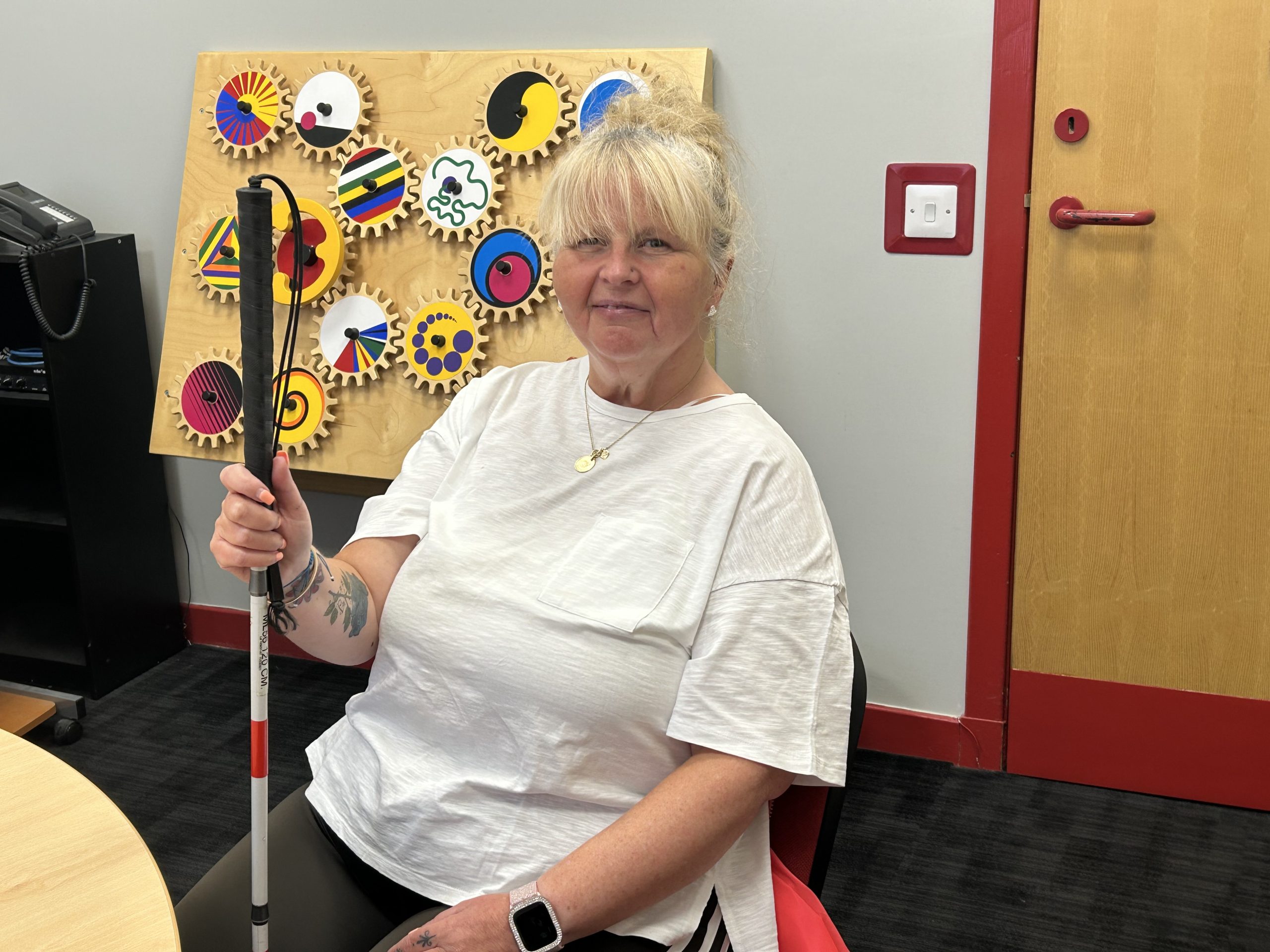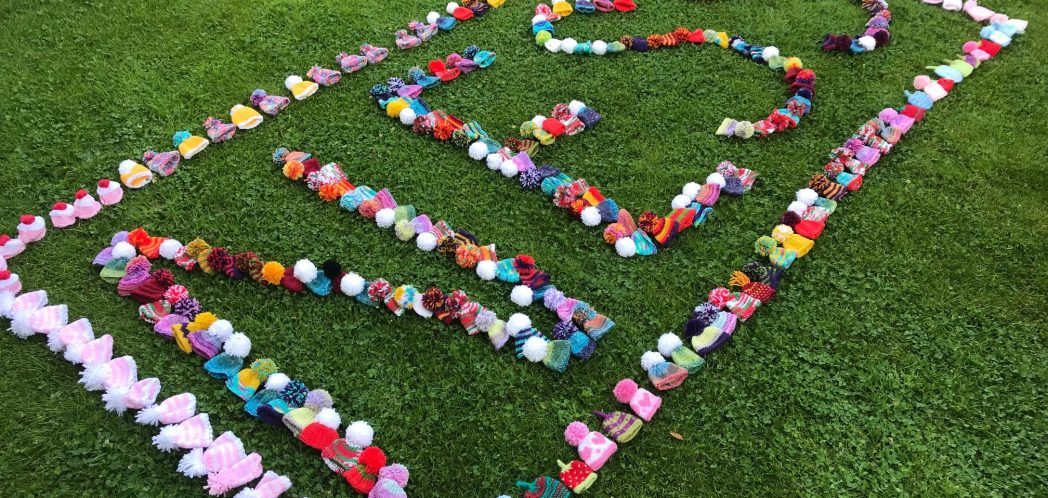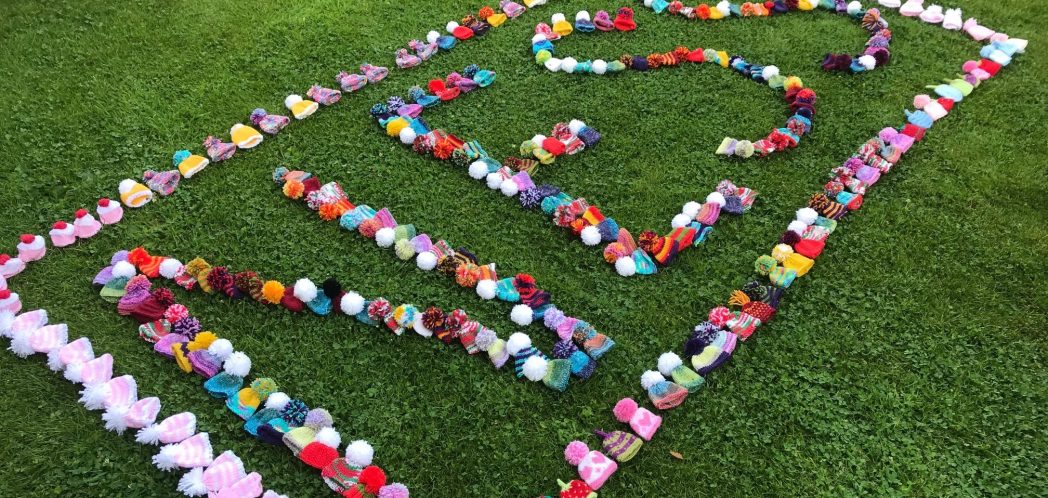Susan Charles is in her late 50s and is living with Usher Syndrome, which was diagnosed in 1998. Usher Syndrome is a genetic condition that causes deafness from birth, and Retinitis Pigmentosa (RP), commonly referred to as tunnel vision, which develops later. For Susan, the RP and Usher Syndrome wasn’t diagnosed until she was in her mid-thirties, although she has had hearing loss from childhood and wears two hearing aids. Susan describes having no vision in one eye and only a small Tunnel in the other eye.
Susan shares her story here.
Early Experiences and Diagnosis
“I felt it when I was young, really, when I was 16. I didn’t understand my chum, who could walk fast in the dark. I would be saying to myself why can she walk fast in the dark? I thought I was clumsy, I didn’t understand what I was feeling.
“I remember my sister noticed one day we were at Weightwatchers, one night, it was dark, and I was feeling for the door and the steps and my sister said, “What’s wrong?” and I said, “I don’t know, it’s dark, I asked her, “Did you see that, the doors and the steps?” and she said she could see them, and I thought that was weird because I couldn’t see them.
“I worked for the fish [fishing industry], and I wondered why I was tripping over things in the dark, I thought it was weird, so I went to the Doctor, who transferred me to the Eye Clinic, they looked in the back of my eye and they told me that I’ve got Usher Syndrome, RP.
Susan was finding her work really difficult, and the doctor signed her off sick, and she hasn’t worked since.
Learning to Live with Usher Syndrome
Susan got in touch with Grampian Society for the Blind as NESS was then, but says she was so depressed, she couldn’t take it all in, couldn’t accept or process what was happening with her. Susan did do some cane training then but felt everyone was looking at her and didn’t like using her cane. In 2000 and 2001, Susan went through some challenging times with her health, as she discovered a lump in her neck that needed surgery, but in preparing for the surgery, they found she also had a hole in her heart. This meant two serious surgeries in six months, while also looking after two children on her own and trying to come to terms with the Usher Syndrome diagnosis.
Susan continues “And then my Mum retired, so I would help my Mum every day. When I went out, I didn’t use my cane, I held onto my Mum, but I felt everyone was watching me. When my Mum passed away in 2012, I just felt lost. I was looking after my dad then, and my sight was getting worse. As time went on, I kept getting headaches and I was sleeping a lot, and seeing things was really hard work. I was using my cane but kept looking down and I’d start to panic, looking for the kerb. I’m scared of kerbs, I’m scared of steps.”
Eventually, I said to myself, “Right, you’ve got Usher Syndrome”, and then I started to speak about it. I didn’t have my mum to hold on to when I went out, so had to learn to use the long cane.
“My daughters told me to phone NESS or Deafblind Scotland. I got a Guide Communicator from Deafblind Scotland because I lacked confidence going out and meeting people. I was getting really anxious and had fallen a couple times.
“I spoke to the NESS social worker about how I was feeling, and she put me in touch with the Rehab Workers to do cane training.
Susan continues, “The first time I went out with the Rehab Worker, oh my God, I was so nervous”. Susan had six months training, but was then suspected of having blood cancer. After a number of tests and finally getting the all clear, Susan was able to resume the cane training, but by this time, she had been diagnosed with arthritis at the bottom of the spine, after experiencing back pain. She now lives with back pain.
Eventually, Susan was able to start the cane training again. She says,“It started just going round my building and then round the block, and we built it up over weeks and weeks. And then we started to go on the bus. I used to take the bus down to my dad’s, but I stopped because I’d lost confidence and used to panic. So, the Rehab Worker trained me to go on the bus, and with the Fieldwork Assistant,, I was able to take the bus down to my Dad’s house. It took about three weeks to build up to that, and it felt like a big achievement – I got a Gold Star!,” Susan laughs. She continues, “If it wasn’t for the Rehab Worker and Fieldwork Assistant, I would still be stuck in the house”.
“I still get good days and bad days. Sometimes, I say to my husband, ‘I can’t see properly today’, some days it’s worse than others”.
“I try and go out, and with the cane, I feel ok going out. But I don’t like this time of year (winter. It’s dark, it makes it more difficult for me to see, although the cane does help. I like summertime”.
Susan has had a lot of other support from NESS, including technology, daily living aids and hearing aid support. She said, “I got a magnifier from NESS to help me read letters, I’m really happy with that. I got talking scales. I used to love baking, which I miss, so I’m trying to do it again. I still cook, but I can’t identify colours so I can’t tell how brown a roast chicken is and so my husband has to check if the chicken is cooked. I’m fine doing things in my own home, I still enjoy doing my washing and my housework, I used to be quick doing things, but now I’m very slow. I can’t pair socks anymore because I can’t see the colours. I like having my kitchen to myself on a Sunday. I send my husband and daughter away so I can stay in there myself, so I don’t bang into them”.
Susan describes no longer enjoying simple things in life because it’s difficult for her to see. She says, “Now, I feel like I can’t do lots of things, I can’t help my dad as much as I did because my sight has deteriorated and I’m worried I smash an ornament or something.
“I used to watch TV during the day but I can’t see the TV the same as I used to, I used to enjoy reading magazines, especially the crime magazine, knitting, quizzes, bingo, Zoom meetings – all of these things I’m not enjoying as much anymore because I can’t see.
I can’t go to the pictures, although I love going to the pictures. My family like going to concerts, which I love, and they’re going to the ice hockey, which I like going to but it’s too difficult because of my sight and my bad back. I can’t sit for that long, but also I can’t see, clearly.
Susan describes no longer enjoying going out for a meal, because she can no longer see the plate of food. She says, “It puts me right down. I say to myself “God, I used to see the food”.”
Little things can help. When she does go out with her family, they put a small light on the table so it’s easier for Susan to see.
Susan continues, “I feel when we go out together, my daughters are looking after me, and it’s not fair on them, I don’t want that, I want the girls enjoying themselves, but they feel they have to look after me, and they can start to panic, for example if someone bumps into me, and they say it’s their fault, they should have guided me properly and I feel bad for them.”
Susan has over time, learned to accept that she has Usher Syndrome. She has become more confident and now explains to people what it means. She says, “When I get a new neighbour coming or meet someone at the supermarket, I explain to them, I say “Look, I’m not ignoring you because I can’t hear, and I can’t see. I don’t want people to think I’m rude.”
She continues, “I would like to tell people that if you are bothered by banging into little things or finding it difficult at night or in darkness, go and see your doctor. These are early indicators of sight loss. And then don’t be afraid to go to NESS and get some help”.




